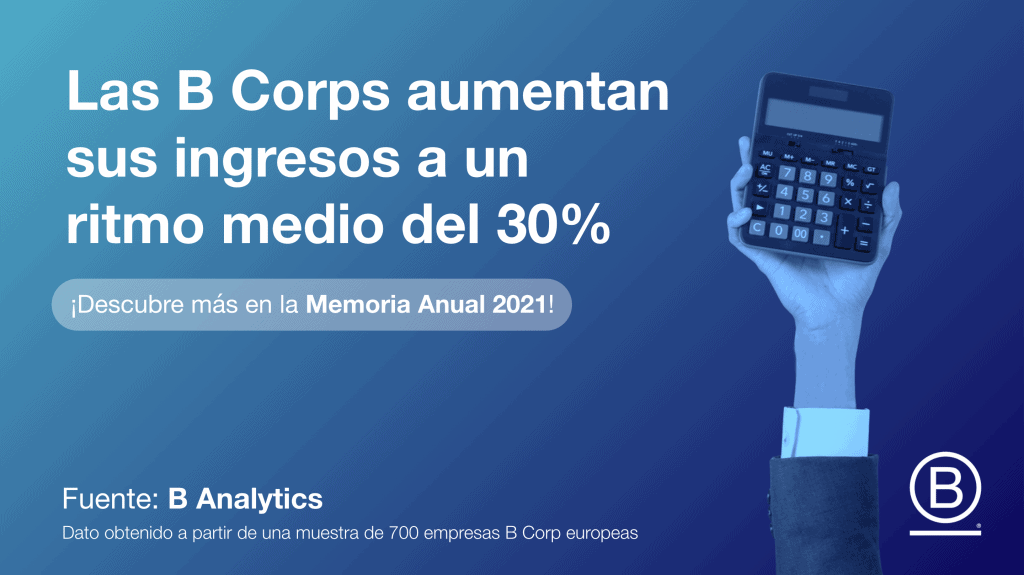The B Corp movement, of which Transcendent is a part, is consolidating in Spain by incorporating 63% more companies than in 2020.
Comprised of companies that meet the highest standards of social and environmental performance, public transparency and legal accountability, the B Corp movement continues to grow. In 2021, the increase was 63% compared to 2020..
Specifically, 31 new companies have joined the B Corp community in Spain and a total of 110 companies now make up the BCorp community in our country.
These companies grow on average by 30% annually.The European Commission's report, based on data from a sample of 700 European companies belonging to this business community, is based on a sample of 700 European companies.
The movement has also grown in other countries. In 2021, 947 companies worldwide were BCorp certified in 2021, 28% more than in 2020.
In total, the global B Corp community closes 2021 with 4,400 companies from 153 industries and 77 countries worldwide. All of them add up to a turnover of more than 125 billion euros on an international scaleof which more than 5 billion from Spanish B Corpsaccording to the annual report 2021 which has just published BLab Spain.

Companies more committed to the environment and social development
B Corp companies are leaders in implementing more environmentally and socially friendly practices in their businesses.
In terms of environmentthe 23% of the B Corps have reduced emissions and 23% have partially or fully offset their emissions by 2021.
In addition, over the past year, they have managed to eliminate or divert nearly 3 million metric tons of waste. In the same vein, the B Corps' 77%s use renewable energy, the 70%s engage in water conservation practices and the 56%s monitor and record their water consumption.
In terms of positive social and employment impact73% of the companies in the movement include women in management positions and 45% have women in middle management positions, thus promoting equality. In addition, more than 66% of these companies are committed to inclusion by hiring people from vulnerable groups, about 90% offer additional financial benefits to their employees and about 70% of them offer paid time off to all or part of their professionals.
2022, the year of purpose-driven companies
As the study states "2022 ESG Trends to Watch"In the new year, sustainability will become even more important, especially ESG trends (ESG Trends 2022) driven by MSCI.Environmental, social and corporate governance, -(Environmental, Social and Corporate Governance). In recent years, such trends are not only being mainstreamed by companies in multiple sectors, but have also attracted the attention of investors and legislative bodies.
In addition, according to the First Barometer of Business Purpose in SpainThe APD y TranscendentAlmost 70% of companies have a defined Purpose. 84% of them have it written down and shared with employees and almost 9 out of 10 believe that it brings value to the business and contributes to improving the company's profitability.
New legal form for purpose-driven companies
In Spain, B Lab Spain, organisations and prominent Spanish personalities are calling for the creation of a new legal form ("Sociedades de Beneficio e Interés Común - SBIC") that recognises purpose-driven companies with the aim of driving the transition towards an inclusive, regenerative and sustainable economy in Spain.
Moreover, in the future, companies will increasingly measure the environmental and social impact of their activities. Already today, many companies are assessing their impacts through impact measurement and management tools. As Pablo Sánchez, executive director of B Lab Spain explains, "more than 190,000 companies around the world already use the B Impact Assessment, a free service that B Lab makes available to all companies to measure and manage their impact on society and the planet and that helps them make decisions to improve their environmental and social indicators. And the future trend we see is that this figure will continue to grow.
You can access the annual report.







